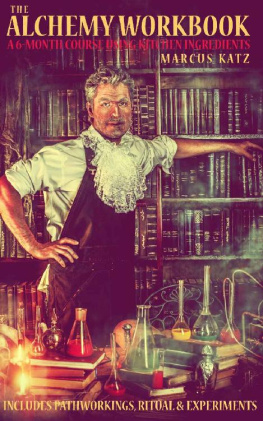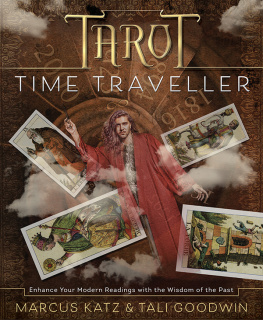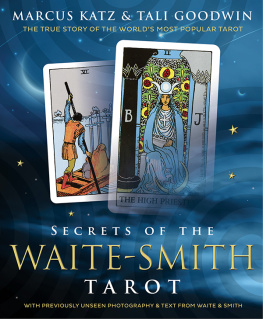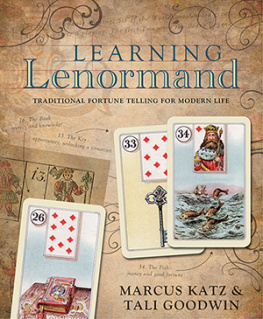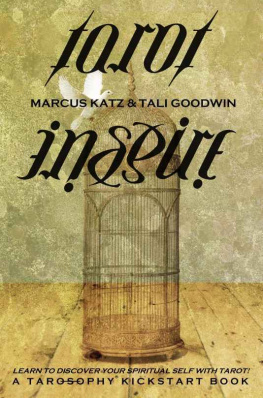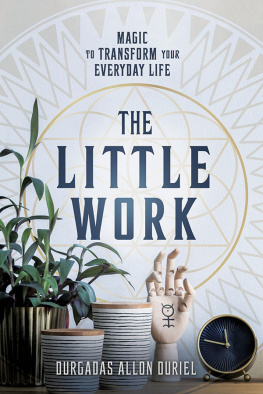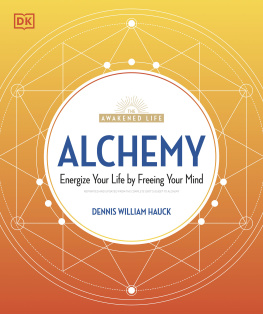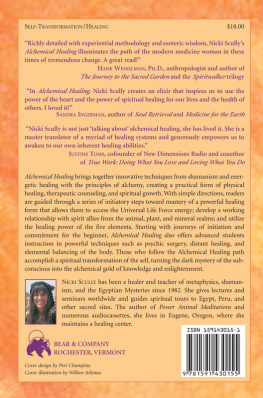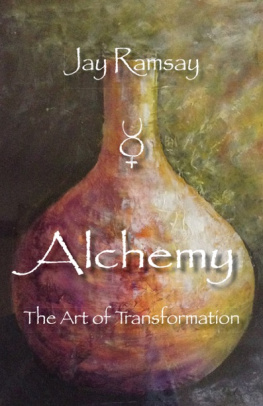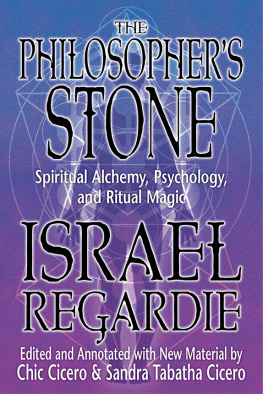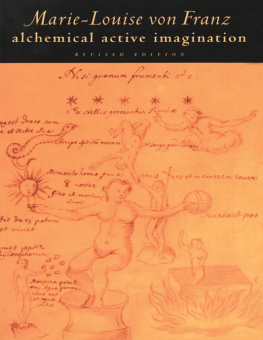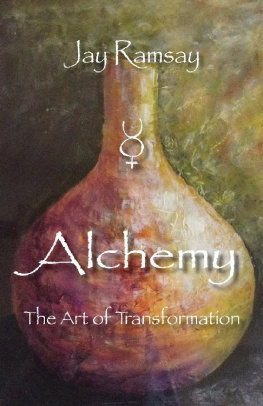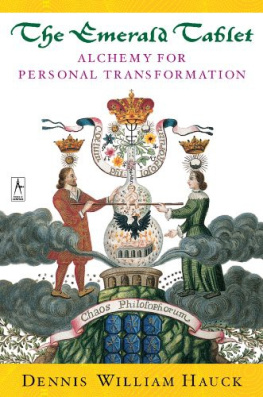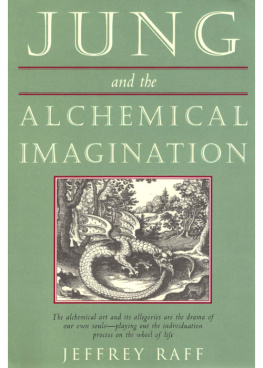

THE ALCHEMY WORKBOOK
A 6-Month Course in Alchemy Using Kitchen Ingredients.
By Marcus Katz
Previously Only Available in print as The Alchemical Amphitheatre
This version modified and updated for Kindle publication.
Copyright Marcus Katz, 2014
Published by Forge Press, Keswick
All rights reserved.
About the Author
Marcus Katz is author of the ground-breaking Tarot book and teaching system, Tarosophy , and is the co-founder of Tarosophy Tarot Associations (Worldwide). In addition to #1 top-selling and award-winning Tarot books with Tali Goodwin, such as Around the Tarot in 78 Days , he is the author of The Magister , a forthcoming 11-volume opus on the Western Esoteric Initiatory System, The Magicians Kabbalah , and the forthcoming Path of the Seasons . He has also written on his NLP and hypnotherapy client work in NLP Magick . He teaches students privately in the Crucible Club , available by application.
Contents
About the Author
Contents
An Alchemical Blessing
Chapter 1: Structure of the Alchemy Course
Chapter 2: Introduction: A New Perspective on Alchemy
Chapter 3: Module 1: Calcination
Chapter 4: Module 2: Solution
Chapter 5: Module 3: Separation
Chapter 6: Module 4: Conjunction
Chapter 7: Module 5: Putrefaction
Chapter 8: Module 6: Coagulation
Bibliography
Kindle Tarot Books & Series
Websites & Resources
An Alchemical Blessing
Cabala and Alchemy
Give thee the medicine most high.
Also the Stone of the Wise,
In which alone the foundation lies,
As is plain before thine eyes
Betimes in these effigies.
O God help us to be grateful
For this gift sublime and pure
The man whose heart and mind Thou openest,
Who is perfect herein
To prepare here this Work
To him may all strength be given.
Steffan Michelspacher, Cabala (1616), Cabala, mirror of Art and Nature: in Alchemy
Structure of the Alchemy Course
This six-module course is designed to give you an introduction to the art and science of magical alchemy. Each module has been structured to give you a variety of activities, to ensure that whatever your learning style youll get the most opportunity to experience the teachings of Alchemy and use them to enrich your daily life.
The content of each module is sufficient for a month of study, meditation and practice, although further reading is provided if you wish to extend your studies at any stage during or after the course.
Each of the six modules has six sections, which relate to the overall subject of the module. There are three readings ; these provide background material and specific information on alchemical subjects, such as an element like Sulpher , or a character like Paracelsus . These begin with general subjects to introduce you to Alchemy, and progress to deeper issues as you become more comfortable with the material. The three readings of each module are one of each; general; academic; and an extract from source material; so that you can choose which - or all - suit your interest.
Each module has also three further elements; Techne , Praxis and Theoria . These are three different ways to learn more about the subject of the module. You can try one, two or all three of the approaches!
The first, techne , is a productive approach - you will try an alchemical experiment to learn about the relationship of alchemy to your real life!
The second, praxis , is a meditative approach - by working with your imagination and the powerful symbolism of alchemy you will enrich your appreciation of the world of Nature through alchemy. You may find this also creates magical changes in your environment that cannot be explained!
The third approach is theoria an intellectual approach to the material, and this is your chance to think about your reading and experience, create an essay, making sense of alchemy in your own mind.
The readings for this course are based on academic research and are therefore factual to primary or secondary source materials. They are also extensively annotated. As such, they require careful reading and you may like to re-visit the material many times.
Although this is an introduction to Alchemy, it is also deliberately dense in material which has been thoroughly reviewed. This is in order to dispel many of the second-hand writings on the subject which place Alchemy as originating in Atlantis or similar ideas. You are encouraged to pass over the more academic writing if you wish and work with the dream-work, visualization or practical aspects of the book. However, if you refer to the academic writing herein, you will find a rich trove of further references and insights into alchemy as a practice.
All of the practical material in this course is unique, and has been constructed for this course alone. You will not find these rituals, exercises or meditations anywhere else on the internet or in publication. The material herein is the result of two years research, and the exercises the result of thirty years practice.
You will also appreciate that even this course structure is alchemical - divided into six modules reflecting the first six stages of the alchemical process. It is hoped you will be able to generalize these teachings to all areas of your experience, in order to live a truly magical - and alchemically transformative - life! Some of these apparently simple exercises and ideas, delivered and followed in the right order, can have profound and challenging impact on your perspective, state of consciousness and external life.
As an introduction to Magickal Alchemy, the practical experiments here concentrate on the usage of Salt , rather than Sulpher or Mercury, for reasons of safety. Also, salt is a commonplace item that may easily be purchased and is likely to already be present in your home! We will see how the mundane and commonplace may be utilized by the alchemist and turned into a deep teaching of the nature of Universe and further magically transform your relationship to it.
Please note that all experiments suggested here are carried out at your own risk and should be treated with a degree of respect. Although seemingly straightforward, even mundane, the work of Alchemy can have profoundly positive yet challenging effects.
Reading List
This book is intended to be self-contained and studied stand-alone to any other material. However, the following titles are invaluable and highly recommended:
- Stanislas Klossowski de Rola, The Golden Game
- E. J. Holmyard, Alchemy
- Edward F. Edinger, Anatomy of the Psyche
- S. J. Linden, The Alchemy Reader
These are also listed and available through the Western Esotericism site , amongst many other recommended books on Tarot, Kabbalah, Witchcraft and Ritual.
There is also a comprehensive reading list at the end of this course for your further study.
Introduction: A New Perspective on Alchemy
What is Magickal Alchemy?

Illus. The Alchemist in his Workshop, David Teniers (1610-1690)
There are many ideas about the source and meaning of the word Alchemy, with some claiming it comes from the Arabic, al-khem , meaning the Art of the land of Khem (Egypt, Khem means Black) or the art of transformation.
The word may also derive from the Greek, meaning the alloying of metals, and it is common knowledge that the principle aim of its practitioners was to turn lead into gold, or create an elixir bestowing eternal life. Other writers, particularly the psychotherapist C.G. Jung (1875 - 1961), delve deeper into the art, noting that the chemical transformations and strange diagrams of kings in baths and ravens in bedrooms can be taken as emblems of spiritual transformation or psychological development. Another form of Alchemy, Spagyric Alchemy, concentrates on vegetable and plant work, making elixirs and tinctures.

